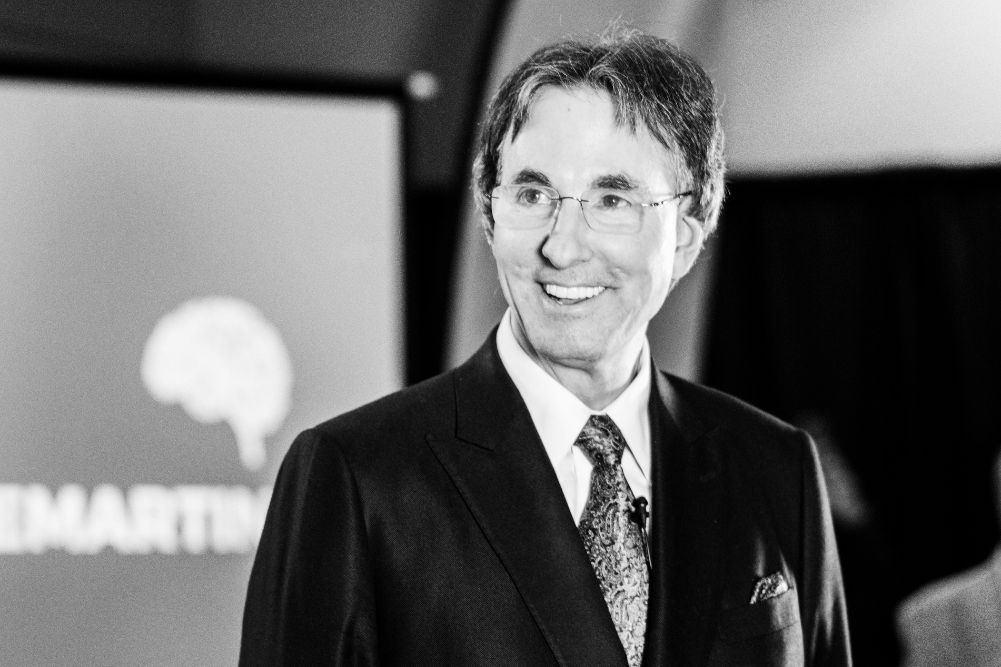Bob Brown
Bob Brown, the celebrated activist and author, has talked the talk for more than four decades, and continues to walk the walk. Most recently, 79-year-old Brown was arrested and found guilty in August 2024 of trespassing in connection with an anti-logging protest in Snow Hill, Tasmania, in which Brown and fellow activists sought to protect critically endangered Swift parrots and their habitat. The prospect of a custodial sentence did not deter Brown from continuing his fight for the environment. “They can jail us, but they can’t lock up our spirit for the planet or love of the Earth and love of life,” says Brown.
It isn’t the first time that Brown has faced prison time. In 1983, Brown was arrested while protesting the construction of the Franklin Dam on the Gordon River in Tasmania. Brown spent 19 days in Hobart’s Risdon Prison, and on the day of his release was elected to Tasmania’s parliament. Thanks to the efforts of Brown and his fellow activists, the campaign against the construction of the Franklin Dam was ultimately successful, and the proposed dam was never constructed.
While Brown may have avoided further jail time in respect of the recent trespassing charges, he is acutely aware that environment activists in other parts of the world frequently face much harsher consequences than activists in Australia. The challenges faced by activists in other countries are to be a topic in a new book that Brown is currently working on, to be titled Defiance, which is a follow up to his 2015 book, Optimism. “I’ve just finished a chapter alluding to the fact that 200 or 300 environmentalists are murdered each year around the world,” Brown says. “We’ve got it pretty easy in Australia. I’ve just talked about Mia [Mascariñas-Green], the environmental lawyer in the Philippines, who was gunned down in front of her children. This is thuggery and violence versus planet saving and a wish for peace. I’m writing about the men and women who are living in dangerous countries like Colombia and Peru and Brazil and Mexico and the Philippines, and indeed China and Russia, that repress activists. Environmentalists just disappear in those countries. That’s something that we should be speaking about. The inspiration is those people living in much, much more dangerous circumstances who nevertheless won’t turn their back on the environment or their children’s right to a secure future planet.”
There is a clearly still a tremendous amount of work to be done to protect the environment and those people that fight for it globally. However, one positive is the change in public perception that Brown has witnessed in Australia over the past 30 years. Reflecting on how things have evolved since the early ‘90s, Brown says, “If I went up the street, I’d be threatened and sworn at with four-letter words and so on. I’d often take someone with me because people were very abusive. But, nowadays, it’s totally changed. People say to me: ‘Good on you, Bob. We’re right with you. Thank you, thank you, thank you.’”
I got to witness this first-hand in August 2024 when I saw Brown in conversation with Jan Fran at the Byron Writers Festival. When Brown was introduced at the event, he got a rockstar’s reception, with people clapping, cheering, whistling and stomping their feet. If anyone had wandered into the room at that moment and witnessed the borderline hysteria, they could have been forgiven for assuming that Mick Jagger was making an appearance, as opposed to an environmentalist and former politician. When Fran pondered how she might best describe Brown, she was inundated with suggestions from the audience, with shouts of “national treasure”, “icon” and “living legend”.
Brown was at the Byron Writers Festival to discuss his latest book, Thera, which is a young-adult novelette featuring environmental philosophy presented in the form of a love story. Thera, an anagram for Earth, tells the story of an alien race who come to Earth after fleeing their own world of greed and disaster. It is Brown’s first work of fiction and is a bold attempt to continue to connect with young people in particular about the plight that humanity is facing.
Brown is also the key figure in the 2022 biographical documentary The Giants, which is now on Netflix. Directed by Laurence Billiet and Rachael Antony and featuring stunning animation from French motion designer Alex Le Guillou, The Giants explores the intertwined fates of trees and humans in a cinematic portrait of Brown. Of the film, Brown says, “If the film inspires one young person to become active for the environment, it will have been a success.”
Brown continues to spearhead other campaigns through the Bob Brown Foundation, including the annual Takayna trail run, which raises funds to protect the Takayna rainforest in Tasmania from mining and logging, including by advocating for it to be recognised as a World Heritage-listed National Park and returned to Aboriginal ownership. Of the trail run, Brown says, “It’s just a remarkably wonderful thing that people should come and enjoy the environment and, through that, contribute so strongly to our effectiveness as a campaigning foundation.”
In addition to local issues in his native Tasmania, Brown remains steadfastly focused on the bigger picture issues that are threatening the existence of our species. “The question is whether we’ll end up with a global catastrophe for human beings simply because the biosphere can’t meet our demands, or whether we’ve got the intelligence to rein in our demands and live peaceably and sustainably with the planet,” Brown says. “That’s the big question for our generation, and it’s a question for every single individual.”
As an individual that has left an indelible imprint on Australian politics, Brown has a unique insight into the governmental changes that are required in order to ensure that the environment is adequately protected now and for future generations. Brown believes that in Australia, regardless of which party is in power, the Minister for Environment is coerced and subjugated by the Ministers for Treasury, Finance and even the Prime Minister, which Brown believes needs to change. “We won’t be on course until the Environment Minister has as much or more power than the Treasurer,” he says. “We can recover our finances, but we can’t recover the environment, lost species, the life-giving climate that brought us into existence. Those things are being taken out of our reach. They are being stolen from us, which is why it is very important that the Minister for the Environment have precedence over the money makers.”
Despite the challenges that we face, Brown continues to embody the very ideals of optimism, defiance and caring that he preaches. His optimistic disposition is remarkable considering our present overconsumption of the planet’s limited resources and modelling of critical environmental markers such as rising sea levels. However, Brown believes that maintaining an optimistic outlook is the only way that we as a global society are going to be able to take the necessary steps to protect the environment and maintain life on Earth. Brown espouses the importance, for young people in particular, of not sitting around and feeling depressed about the state of the world, but to instead be inspired to get up and take action. And when it comes to matters of the environment and the future of civilisation, there are none more inspiring than Bob Brown.








